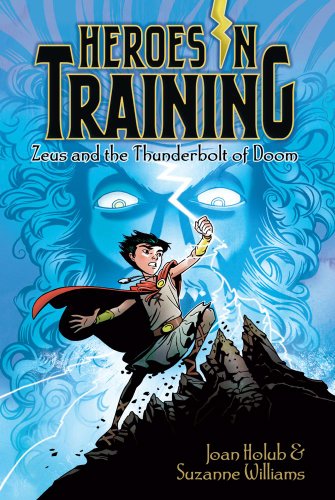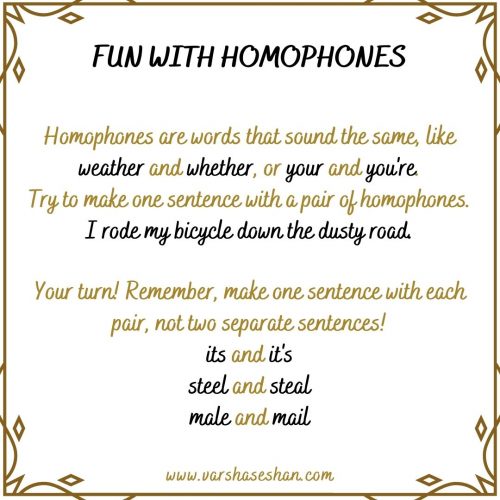Zeus and the Thunderbolt of Doom opens with the oracle at Delphi predicting the fall of the Titans. The future is misty and the oracle’s glasses are foggy, so she can’t quite tell what will happen. What lies ahead? Dancers? Oh, no. Danger. Danger lies ahead.
On that humorous note, we begin the story of Zeus, who has no idea that he isn’t an ordinary ten-year-old boy. Sure, it often feels like the lightning is after him, but then, that isn’t possible, is it? It’s a coincidence. It has to be. Except for the fact that each time lightning strikes him, he hears a voice saying, “You are the one.”
I thoroughly enjoyed reading Zeus and the Thunderbolt of Doom, which made me sure that my book club would love it too. Adventure, suspense and a good dose of mythology make it a fun read!

Chip English
At the temple in Delphi, Zeus discovers a rock chip, which speaks to him in Chip Latin. What does this mean? Move the first letter of a word to the end and add -ip to it. So, for instance, take the word lion. It becomes ion-lip. I loved p-language so much as a child that I’m sure it will be fun playing with Chip English at my book club!
Homophones
“Flea!” say the Harpies. At least, that’s what Zeus understands. He’s nettled. He’s not a flea! He may be small, but not a flea, certainly! It takes a while for him to realise that they mean ‘flee’ not ‘flea’. This is the perfect context to introduce homophones to my book club. We’ll see how many homophones we can think of, and try to see what sort of confusion these homophones could create.

Friends
As a child, Zeus’s friends are a nymph, a bee and a goat. What unusual friends do you think would be useful? In what ways would they help you, and in what ways could you help them?
Join my book club!
Registrations are now closed for the February-March 2025 edition of my book club. New batches begin every alternate month. Join my mailing list if you would like to receive email notifications about my programmes. Alternatively, follow me on social media – Facebook and Instagram – for regular updates.


Leave a Reply